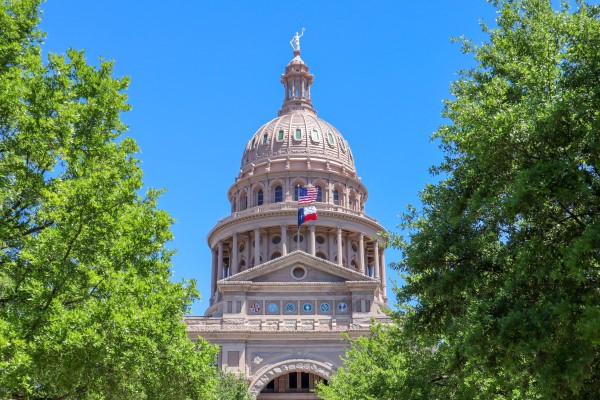Deep Dive: Texas Lawmakers' Plans for Water Infrastructure Funding
Published Mar 14, 2025 by Jordan Overturf
Texas lawmakers are moving forward with securing the state's long-term water future with sweeping new legislation aimed at increasing water availability and funding critical infrastructure improvements. Senate Bill 7 (SB 7) lays out a comprehensive framework to address these challenges, reinforcing the state’s commitment to sustainable water solutions.
The Partnership joins Texas 2036, a leading voice in the statewide coalition, in supporting this critical initiative. Filed by Sen. Charles Perry in early March, SB 7 represents one of the most anticipated policy measures of the legislative session.
Here's a look at the proposed legislation in both chambers.
What’s in the Bill?
Sen. Perry was emphatic about the need for Texas to deliver a solution. “Water scarcity is no longer a distant threat,” the senator said in his Thursday press release announcing the bill's filing. “It’s here, and it’s already disrupting the lives of Texans across the state. From West and South Texas, where agriculture is being strangled, to communities struggling to keep up with economic and industrial growth, the lack of water has become the biggest limiting factor for our state’s future.”
For decades, Sen. Perry has been a leading voice on this issue. SB 7 is the culmination of decades of work that saw its first taste of victory in 2023 with the creation of the Texas Water Fund. In SB 7, the plan includes three key components: expanded authority for the Texas Water Development Board to deliver funding for water projects, enhanced legislative oversight through the restructured Texas Water Fund Advisory Committee, and improved reporting and accountability measures.
What are ‘Sweeping Changes’?
SB 7 is targeting the following initiatives to bring new water resources across the Lone Star State:
- Creates the Texas Water Fund Advisory Committee to provide oversight of all Texas Water Fund activities
- Requires the Texas Water Development Board (TWBD) to submit a biennial progress report to the Legislature regarding projects financed with Texas Water Fund money
- Creates the Office of Water Supply Conveyance Coordination to optimize water supply infrastructure construction for regional and statewide interconnection and interoperability
- Protects non-saline groundwater reserves in the state’s rapidly depleting freshwater aquifers
- Preserves local control over surface water rights
- Authorizes TWDB’s state water bank program to purchase out-of-state water for importation to meet the needs of Texans across the state
- Expands both project eligibility for financing from the New Water Supply for Texas Fund and the available methods of financing
- Prioritizes wastewater treatment projects in rural communities and small cities for financial assistance
- Adds the Flood Infrastructure Fund to the Texas Water Fund structure, allowing flood projects to be financed using the funding stream constitutionally dedicated by Senate Joint Resolution 66.
Click here to download the one-pager outlining the goals for SB 7 and Senate Joint Resolution 66.
What is in the House Bill?
There are many similarities between SB 7 and House Bill 16 (HB 16) by Representative Cody Harris. The latter is broader in scope, with differences in approach to water infrastructure development, financial allocations, legislative oversight, and reporting measures. Here are several highlights from HB 16:
- Expands funding for produced water treatment projects, excluding those identified for oil and gas exploration
- Emphasizes prioritization of rural populations (less than 150,000) and projects with significant progress on state/federal permitting
- Allows funding transfers for the economically distressed areas program account and ensures funding for public water awareness, water conservation, and water loss mitigation
- Slightly modifies the makeup of Texas Water Fund Advisory Committee—including a seat for Texas Department of Emergency Management
- Expands the duties of the committee to conduct regular reviews of historically underutilized businesses participation, annual reports on statewide supply expansion, and direct oversight of state water project funding
- Requires regular reports to the legislature with updates on project delivery, completed infrastructure repairs and economic benefits of funded projects
What’s Next?
HB 16 has already been referred to the House Committee on Natural Resources. SB 7 will likely be referred to the Senate Committee on Water, Agriculture, and Rural Affairs, which Sen. Perry chairs.
One version of the bill must pass the legislative process. If the House or Senate makes significant modifications after the first chamber's approval, a Conference Committee may be convened to reconcile the differences and finalize a unified version. The Partnership will continue to provide updates as the bill advances.
 The Houston Report
The Houston Report




















